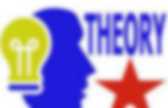

This is due to the role theory plays In social research, a role complicated by the fact that it Is utilised for different purposes by different academic perspectives working in different philosophical traditions within the human sciences.
--------------------------
What is a theory?
A theory is a proposition about the relationship between things. In principle, a theory is universal, applying at all times and to all instances of the thing(s) in question. In the social sciences, the notion of ‘theory’ needs to be treated more cautiously than in the natural sciences, because of the complexity of social phenomena and because people react to knowledge about themselves in a way that chemicals and forces do not.
from:
Denscombe, M. (2003) The Good Research Guide: For Small-Scale Social Research Projects: For Small-Scale Social Research Projects. 2nd Edition. Maidenhead, Berkshire, England, United Kingdom: Open University Press. ISBN: 9780335213030.
◥ University. {q} PhD. {tr} Training. ⚫ UK. ⚫ England. ⬤ London. ☢️ Theory. Category:Theories. Adaptive representation. From Wikipedia, the free encyclopedia Theory about the nature of cognition Adaptive representation is an extension by Francis Heylighen[1] to Kant's theory of knowledge. Heylighen has proposed a revision of these Kantian ideas, in which these principles are not supposed to be invariant and necessary.
Instead, alternative principles exist for the organization of experience in adaptive representations. This opens a path for new investigations in the philosophy of mind and human cognition. ^ Heylighen, Francis (1990). Web edition of "Representation and Change" (1999). Absolute theory. From Wikipedia, the free encyclopedia In philosophy, absolute theory (or absolutism)[1] usually refers to a theory based on concepts (such as the concept of space) that exist independently of other concepts and objects. The absolute point of view was advocated in physics by Isaac Newton.[1] It is one of the traditional views of space along with relational theory and the Kantian theory.[2] According to the absolute theory of space, it is a homogeneous structure which exists and is independent of other things.[2] The Newtonian arguments of this theory, particularly those concerned with the ontological status of space and time, had been related to the existence of God through the concepts of absolute space and absolute time.[3] It was proposed that the universe was finite in extent and was said to have begun in time.[3] Additionally, space exists prior to the body or matter that occupies it and it was held that the universe – as a finite object – is situated within it.[4]
◢ Keyword: B.
{th} Beneficence. {th} BCT. ◢ Keyword: C. {th} Comms. 〰️ Theories Cl. {th} CST. {th} Critical. ◢ Keyword: E. ⏫ Economics. {th} Empiricism. ☢️ Emerging T' ◢ Keyword: F. {th} Firm. ☢️ Feminist T' Fusion adaptive resonance theory. Fusion adaptive resonance theory (fusion ART)[1][2] is a generalization of self-organizing neural networks known as the original Adaptive Resonance Theory[3] models for learning recognition categories across multiple pattern channels. There is a separate stream of work on fusion ARTMAP,[4][5] that extends fuzzy ARTMAP consisting of two fuzzy ART modules connected by an inter-ART map field to an extended architecture consisting of multiple ART modules. Fusion ART unifies a number of neural model designs and supports a myriad of learning paradigms, notably unsupervised learning, supervised learning, reinforcement learning, multimodal learning, and sequence learning.
In addition, various extensions have been developed for domain knowledge integration,[6] memory representation,[7][8] and modelling of high level cognition. Fusion ART is a natural extension of the original adaptive resonance theory (ART)[3][9] models developed by Stephen Grossberg and Gail A. Types of fusion ART [edit] . . ◢ Keyword: G.
{th} Grounded. ◢ Keyword: I. {th} IDT. ◢ Keyword: K. {th} KBV. ◢ Keyword: M. {th} Metatheory. {th} Mid-Range. {th} Mind. ◢ Keyword: N. {th} Normative. ◢ Keyword: P. {th} Personal. ◢ Keyword: R. {th} *Realism. {th} RCM. ◢ Keyword: S. {th} SoCo. {th} Systems Think. {th} S' Functional. {th} Stakeholder. {th} System. {th} Scholarly. ◢ Keyword: T. {th} TRA. {th} T&L. {th} TAM. {th} TPB. ☢️ T' Explanation. ◢ Keyword: U. {th} UGT. ◢ Keyword: W. {th} Working.